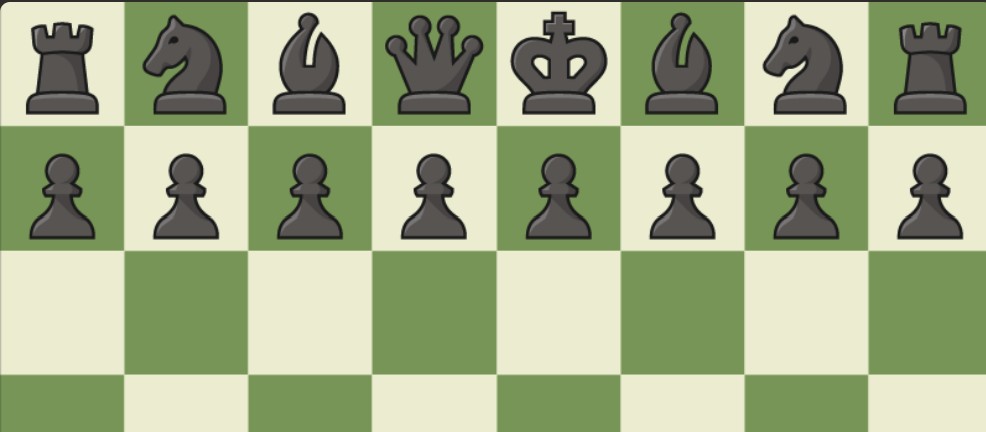Chess is a game of strategy, intellect, and skill, played on an 8×8 checkered board with 32 pieces -16 for each player. Each piece has a unique name, starting position, and movement pattern. Understanding these fundamentals is essential for any beginner looking to master the game.
The Chess Pieces and Their Starting Positions
A standard chess set consists of six different types of chess pieces, each with a distinct role. At the start of the game, they are arranged in two rows (ranks) on opposite sides of the board. You can read about setting up a chess board here.
1. The Pawn (8 per player)
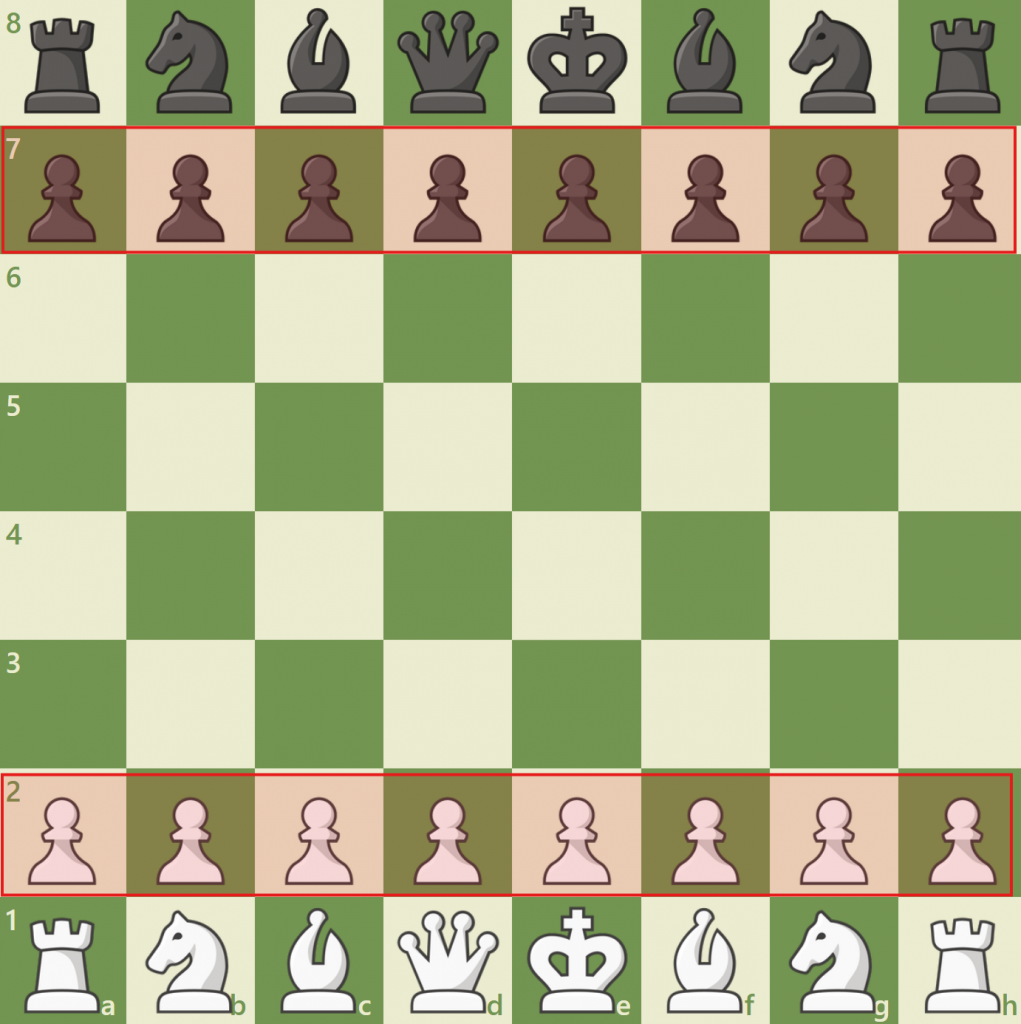
- Starting Position: All pawns are placed on the second rank (Row 2 for White, Row 7 for Black).
- Movement:
- Moves forward one square at a time.
- On its first move, it can move two squares forward.
- Captures diagonally (one square forward-left or forward-right).
- Cannot move backward.
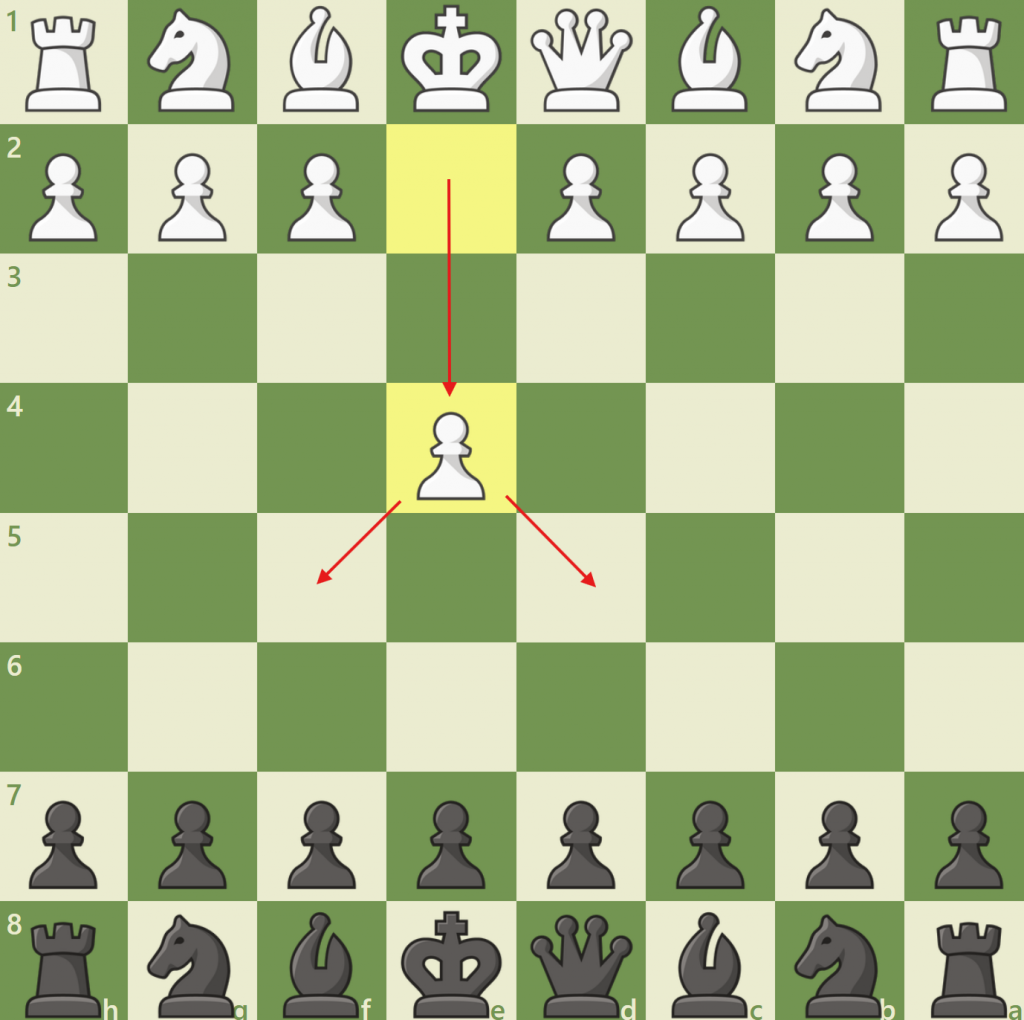
Example: If my pawn is on e2, I can move it to e3 or, on its first move, e4. If an opponent’s piece is on d3 or f3, I can capture it by moving diagonally.
Special Rule: If a pawn reaches the opponent’s back rank (8th for White, 1st for Black), it can be promoted to any other piece (except a king).
2. The Rook (2 per player)
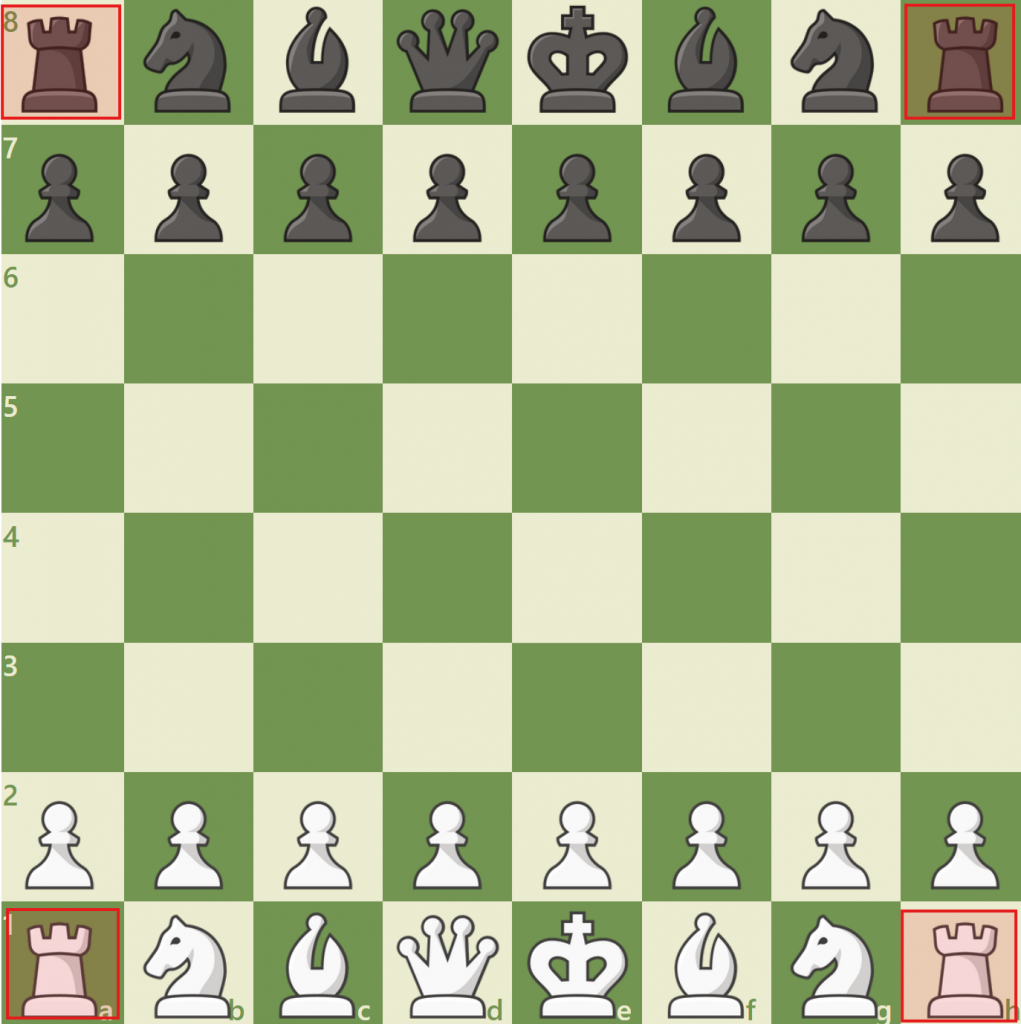
- Starting Position: Corners of the board (a1 & h1 for White, a8 & h8 for Black).
- Movement:
- Moves horizontally or vertically any number of squares.
- Cannot jump over other chess pieces.

Example: If my rook is on a4, I can move it to any square along the fourth rank (a4-h4) or up and down the a-file (a1-a8), as long as there are no pieces blocking its path.
Special Role: Used in castling (a defensive move involving the king). You can read more about castling here.
3. The Knight (2 per player)
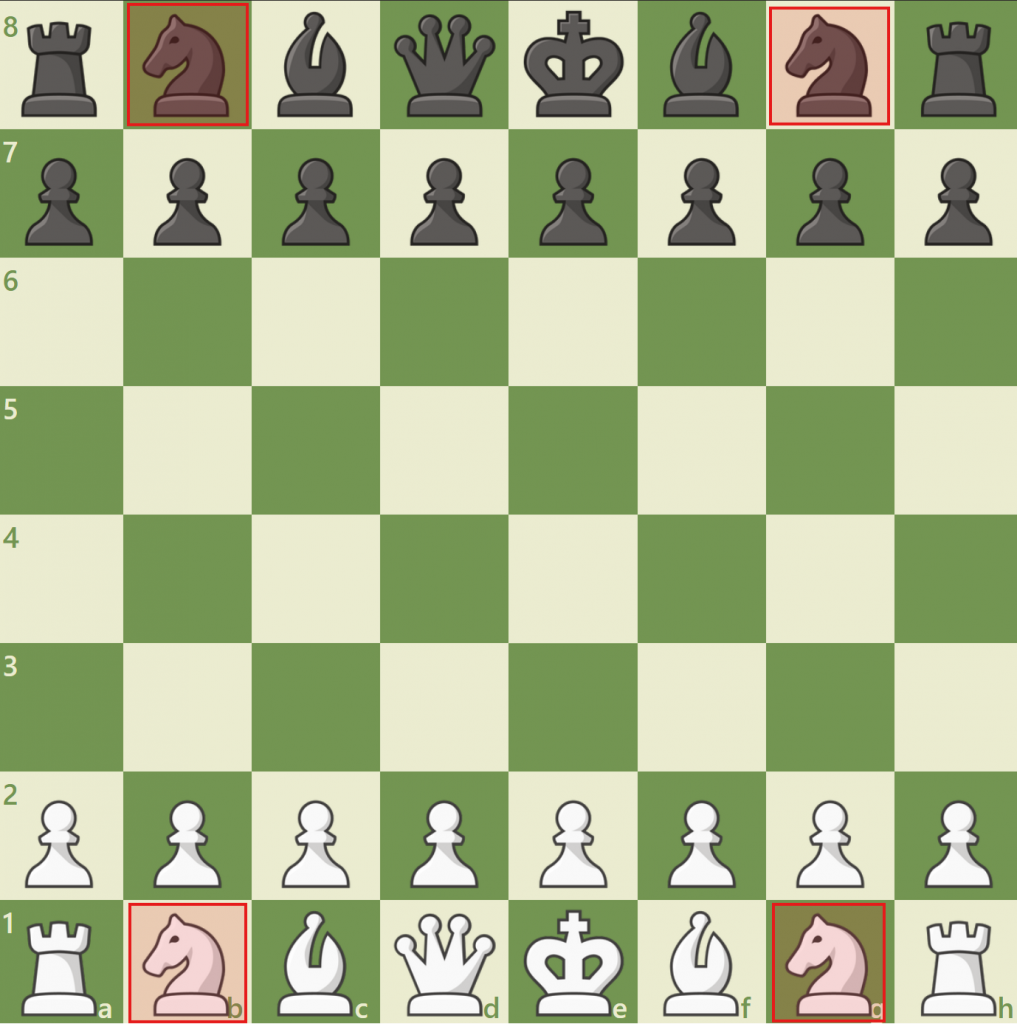
- Starting Position: Next to the rooks (b1 & g1 for White, b8 & g8 for Black).
- Movement:
- Moves in an “L-shape” (two squares in one direction, then one square perpendicular).
- Only piece that can jump over others.

Example: If my knight is on e5, I can move it to c4, c6, d3, d7, f3, f7, g4, or g6, even if other pieces are in between.
Tactical Use: Excellent for forks (attacking two pieces at once).
4. The Bishop (2 per player)
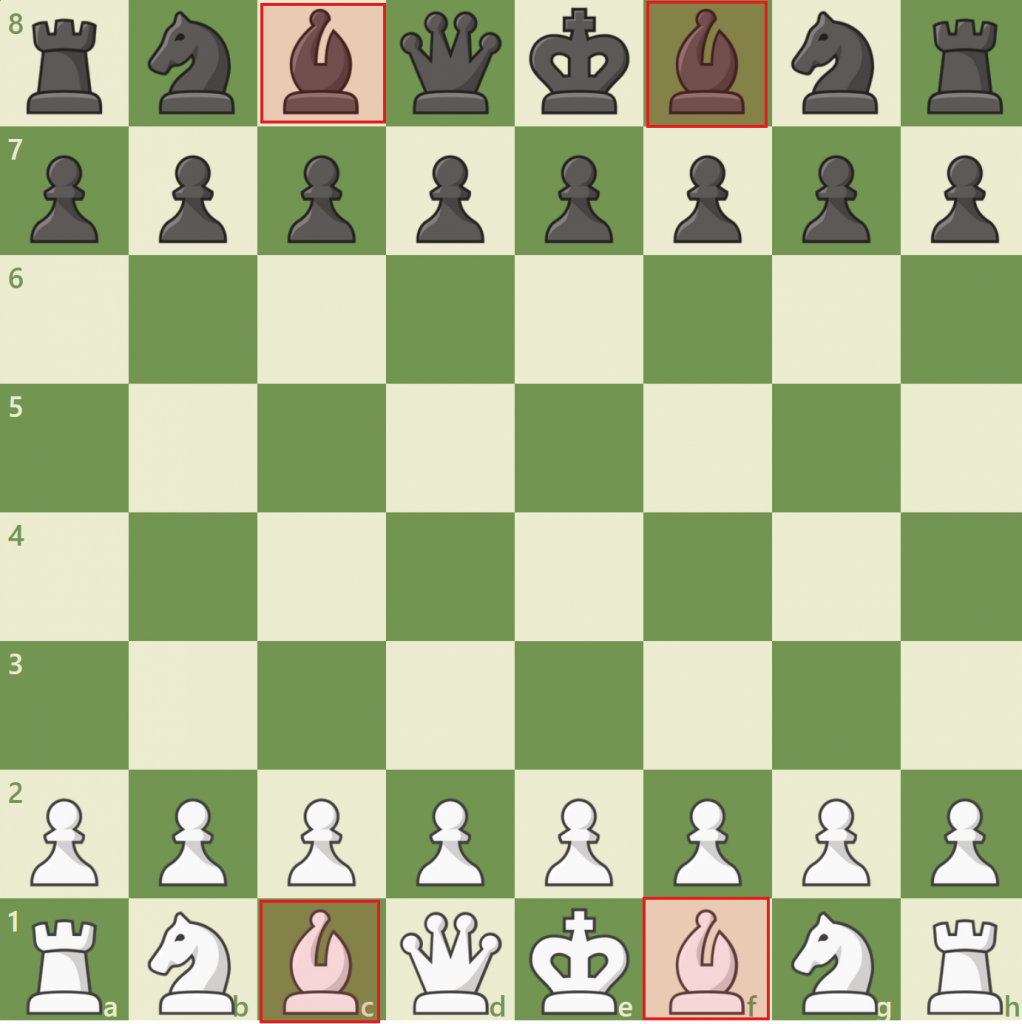
- Starting Position: Next to the knights (c1 & f1 for White, c8 & f8 for Black).
- Movement:
- Moves diagonally any number of squares.
- Each bishop stays on its starting color (light or dark squares).

Example: If my bishop is on f3, I can move it diagonally to e2, d1, g4, h5, e4, d5, c6, b7, or a8, depending on the board’s situation.
Strength: Works best in open positions with long diagonals.
5. The Queen (1 per player)
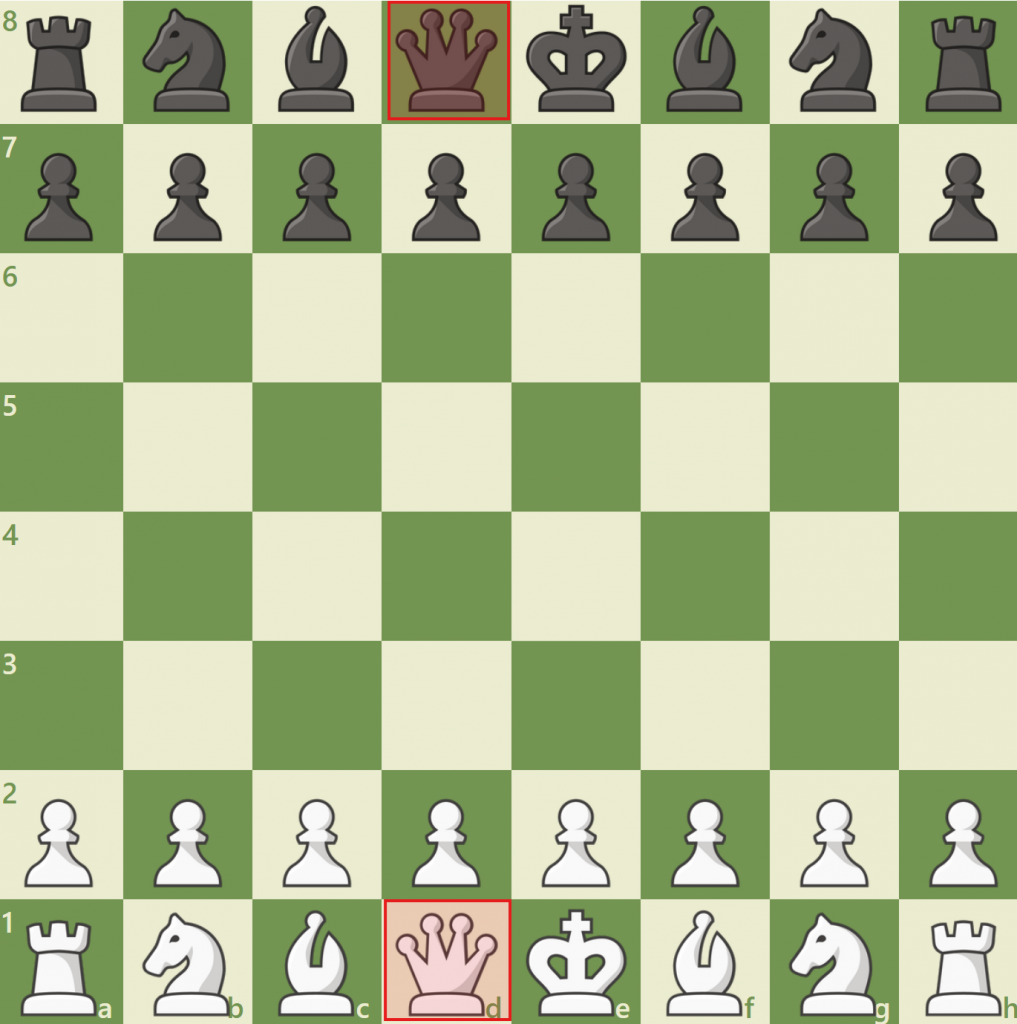
- Starting Position: On its own color (d1 for White, d8 for Black).
- Movement:
- Combines the power of a rook and bishop – moves horizontally, vertically, or diagonally any number of squares.
- Most powerful piece on the board. It can move both like a rook and a bishop!

Example: If my queen is on d4, I can move it to d1, d2, d3, d5, d6, d7, d8 (vertically), a4, b4, c4, e4, f4, g4, h4 (horizontally), or diagonally to a1, b2, c3, e5, f6, g7, h8, a7, b6, c5, e3, f2, or g1.
Tip: Avoid bringing the queen out too early; it can become a target.
6. The King (1 per player)
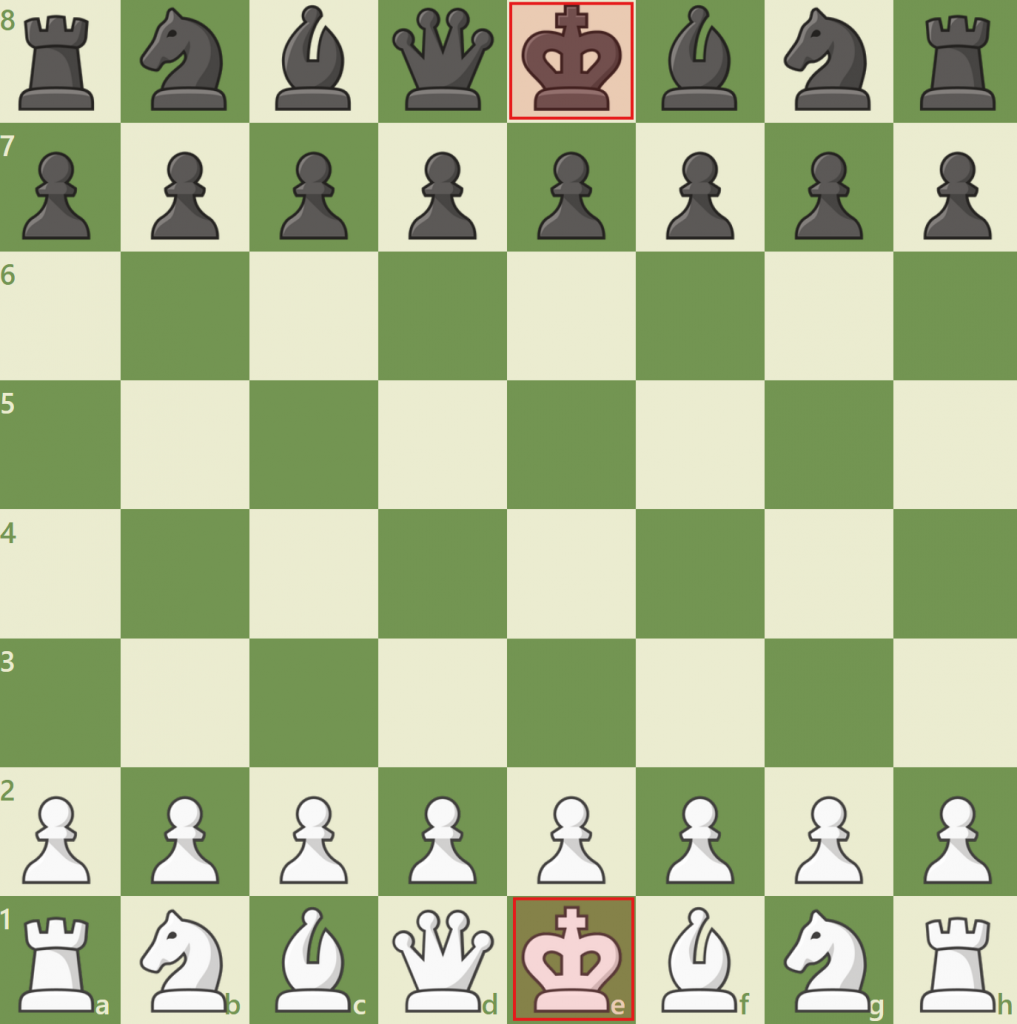
- Starting Position: Next to the queen (e1 for White, e8 for Black).
- Movement:
- Moves one square in any direction (horizontally, vertically, or diagonally).
- Must never move into check (a square where it can be captured).

Example: If my king is on e4, I can move it to d3, d4, d5, e3, e5, f3, f4, or f5, as long as these squares are not under attack.
Special Move: Castling – the king moves two squares toward a rook, and the rook jumps over it (only possible if neither piece has moved yet). You can read more about castling here.
How Many Chess Pieces Are There in Total?
Each player starts with 16 pieces:
- 8 Pawns
- 2 Rooks
- 2 Knights
- 2 Bishops
- 1 Queen
- 1 King
This makes a total of 32 chess pieces on the board at the beginning of the game.
Do you know how many squares are there on a chessboard? The answer might surprise you! Read here.
Relative Value of Chess Pieces
While all chess pieces are important, some are stronger than others. Here’s a general ranking (in pawn equivalents):
- Pawn = 1 point
- Knight = 3 points
- Bishop = 3 points
- Rook = 5 points
- Queen = 9 points
- King = Priceless (cannot be captured, only checkmate)
Mastering the Basics
Understanding chess pieces – their names, starting positions, and movements—is the first step toward becoming a strong player. Here’s a quick recap:
- Pawns move forward but capture diagonally.
- Rooks move in straight lines.
- Knights jump in an L-shape.
- Bishops slide diagonally.
- Queens combine rook and bishop movement.
- Kings move one square in any direction.
Now that you know how each piece works, the next step is to practice basic strategies like controlling the center, developing pieces, and protecting your king. Ready to play your first game? Set up the board and make your move!
Want to start your chess journey today from top-rated coaches in India? Head over to Caissa School of Chess.


